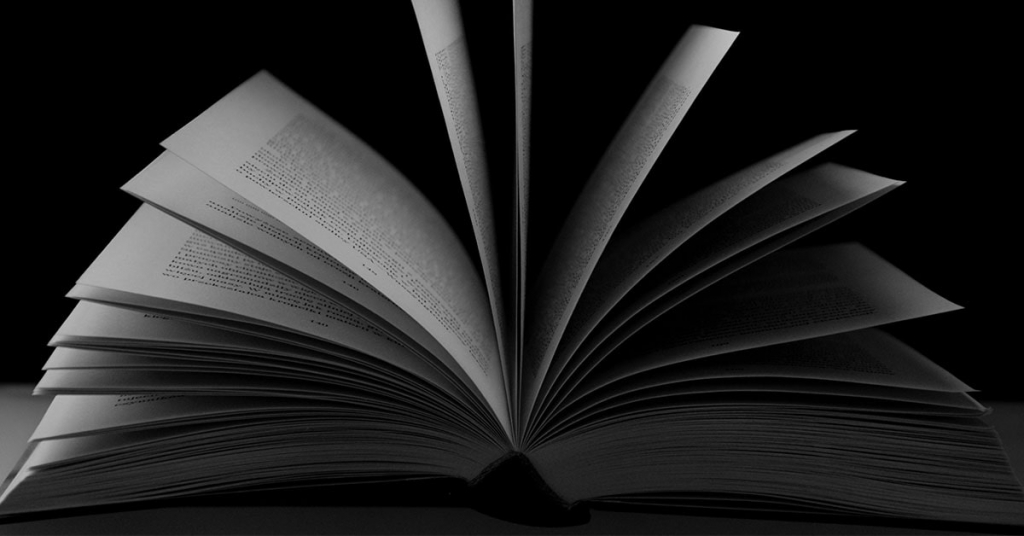Reading is one of the most important things you can do in your life.
When you’re living your life, you’re only experiencing one life— yours. But when you’re reading, you’re experiencing a different perspective of life from someone who lived out different things than you did.
“Your personal experiences make up maybe 0.00000001% of what’s happened in the world but maybe 80% of how you think the world works.” —Morgan Housel¹
So when you read, you’re getting to know more of reality, more of the world of which you are a part of. And learning other perspectives, knowledge, and mental models² is a crucial skill in perceiving the reality of the world.
But why am I telling you all of this here?
Because there are two ways you can acquire that worldly knowledge— traveling and reading. And today, we’ll talk about the latter— reading.
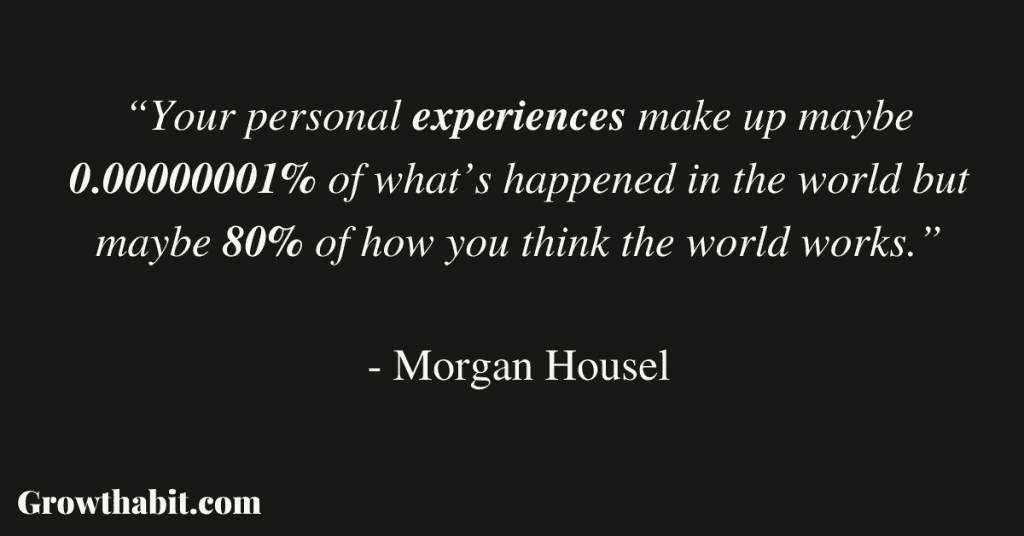
Why is reading important
I won’t talk about the importance of literacy here, but I’ll tell you why reading is important. Knowing how to read and not reading is the same as not knowing how to read.
Reading opens up new worlds for us. It allows us to look into how people live their lives in different places, what kind of information is crucial at different geographical locations, and how a world looks from a different lens. That’s looking at reading from an information standpoint. But there are so many of them like:
- understanding how the world works
- learning stories crucial for your integration into the society
- practicing the muscle— the mind
- creative thinking
- innovation
- improves health & wellbeing³
- reading helps improve concentration and focus
- it improves your vocabulary
- it increases your memory and retention of information⁴
But not all reading is the same. Some reading, like magazines for entertainment, doesn’t bring the same level of benefits to the reader as reading books.
Why is reading books important
Let’s start with a quote from an author and philosopher Mortimer Adler⁵,
“Obviously, the more condensed a digest is, the more selection has occurred. We may not have to worry about this very much if 1000 pages are cut down to 900, say; but if 1000 pages are cut to ten, or even one, then the question of what has been left out becomes critical.”
The problem with communication and media today is that the information provided there is second or even third-order information.
First, second, and third-order information
Third-order information means that it’s two hands away from the source of the information, second-order information means that it’s one hand away from the source of the information. And, of course, the first-order information means that it’s the source of the information.
On a practical example, this would be the following:
- I witness a car accident (first-order information)
- I tell my friend what happened (he now has the second-order information).
- He then tells it to a third person who wasn’t there when I was telling the information (third-order information)
Now, just think about how much information has been changed (consciously or unconsciously) during the transfer of the information from me witnessing the car accident to a random person hearing about it.
In our world today, that would be:
- Scientific papers and books (first-order information)
- Articles, summaries, and digests (second-order information)
- A 2-minute video clip on Facebook, Instagram, or YouTube about the book or scientific paper from someone who didn’t read the paper or the book, but read an article, summary, or digest about it.
It’s important to read books today because that’s the first-order information— you’re going straight to the source and getting the most out of your effort. Especially when it comes to the short attention span of today’s culture. It’s crucial to pick up a book and get the entire picture instead of allowing someone else to merge snippets from here and there and create an incomplete image of the author’s work.
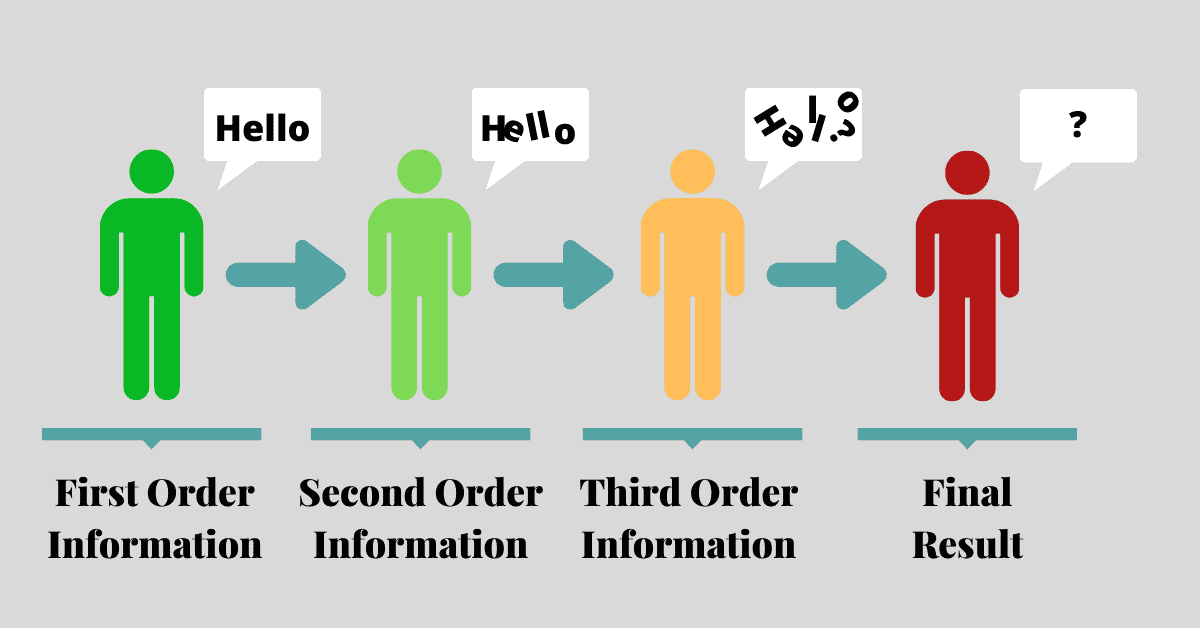
But not only are you getting the full picture, but you’re also acquiring multiple skills by reading books.
Is reading books good for you
“There must be something in books, things we can’t imagine, to make a woman stay in a burning house; there must be something there. You don’t stay for nothing.” —Ray Bradbury, Fahrenheit 451⁶
Reading books is one of the best ways you can spend (invest) your time. By reading books, you will, first of all, go straight to the source of the information and do the thinking for yourself. Secondly, you will acquire the full picture of the idea the author was trying to present. And last, but not least, you will integrate the idea the author wrote about and try to find a way to implement it in your life by becoming a better person.
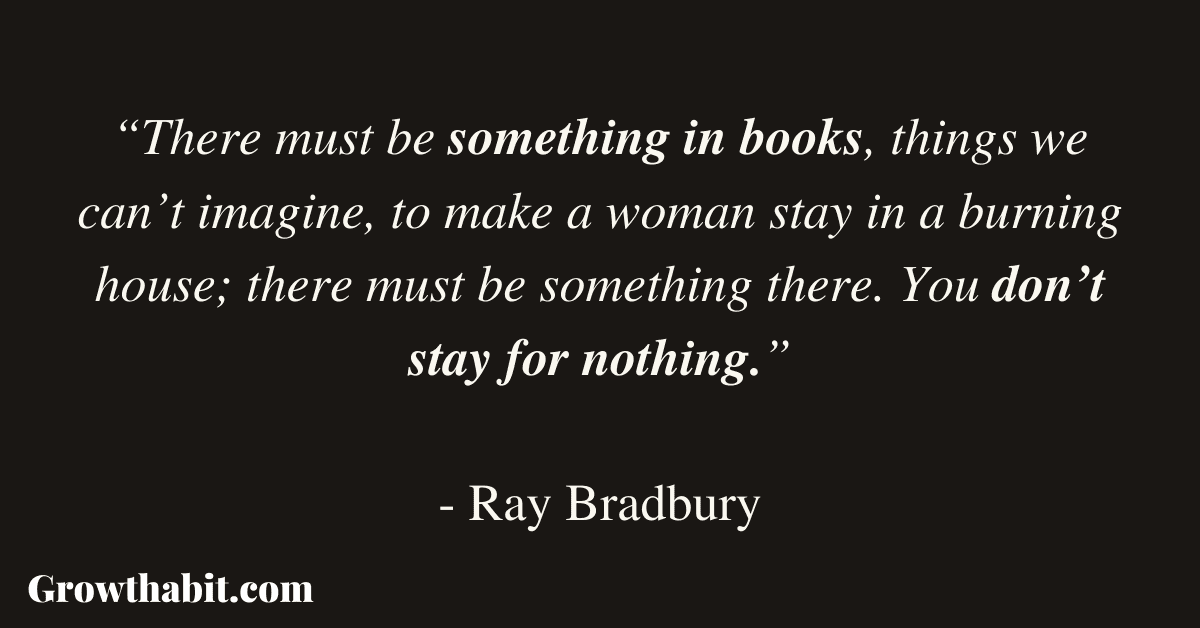
What are the benefits of reading books
There are multiple benefits of reading books. Some of the most basic ones are that it will increase your focus and concentration, that you will learn new ideas, that you will boost your memory by retaining the information found in a book.
But there are some that you only gain when you build a habit of reading books. And I would argue that those are the most worthwhile benefits and skills you can gain for life:
The ability to discipline yourself and read through a difficult book
When you just start reading books, you will find the ones that are interesting to you. At first, they will contain the basic, fundamental, elements of a field and they will be quite easy to read through and comprehend. But as you move deeper in the field in search of more specific information, you will find books that are hard to read, require a lot more time and focus, and aren’t easy to finish.
These books (like Gödel, Escher, Bach by Douglas Hofstadter⁷) will test your patience, focus, concentration, and comprehension. They will require from you a discipline that will push you to read the book to the end and extract the most fundamental ideas. Not only will this make you a better reader, but you will also one of the most important skills in life—how to discipline yourself to go through something hard, but meaningful. Great books, the ones that require intensive focus, will give you this benefit and skill.
The ability to combine old ideas into new creations
The ones that get ahead in life today aren’t the ones that are the masters of one skill. But those that can combine old ideas into new creations. And reading books will enable you this.
While reading books, your mind will start to make conscious (and unconscious) connections that will start firing in your mind. You have no idea what the new idea will be, but you will have enough information in your head for it to start combining. And then, your might get a glimpse of something somewhere and your mind will connect two random and crazy ideas like…..physics and love⁸.
What will come out of it? An idea for an article, book, play, or movie that connects the Second Law of Thermodynamics (entropy is always higher than zero– all closed systems will eventually lose their energy) with relationships. So you start talking about implementing the laws of physics within relationships and create a completely new field.
“I’m a perfect example of the power of leveraging multiple mediocre skills. I’m a rich and famous cartoonist who doesn’t draw well. At social gatherings, I’m usually not the funniest person in the room. My writing skills are good, not great. But what I have that most artists and cartoonists do not have is years of corporate business experience plus an MBA from Berkeley’s Haas School of Business. My combined mediocre skills are worth far more than the sum of the parts.” —Scott Adams, creator of cartoon Dilbert⁹
Will reading books make you smarter
This is one more benefit that deserves a heading of its own. Reading books can make you smarter, but it won’t make you smarter by itself.
“The second is the ignorance of those who have misread many books. They are, as Alexander Pope rightly calls them, bookful blockheads, ignorantly read. There have always been literate ignoramuses who have read too widely and not well. The Greeks had a name for such a mixture of learning and folly which might be applied to the bookish but poorly read of all ages. They are all sophomores.” —Mortimer Adler, How To Read A Book
Just reading books left and right won’t make you smarter because that’s only the first part of the equation. Yes, you do need to read books to become smarter. But that’s only information that you get in your head. For it to become wisdom, you need to integrate the lessons of those books and start implementing them in reality.
Life isn’t a school where you need to learn something for the exam on Monday and forget it the next Tuesday. To become smarter from reading books, you need to learn how to read books the right way.
Learn to read books
There’s a framework for learning how to read books. You might be thinking that you already know how to read a book—it’s taught in elementary school. Our schools only teach us the first, the elementary, level of reading.
That level simply teaches us how to decode the black dots on the screen known as the letters and words. And since you were taught English in school, everything up to now seems easily comprehensible until I start writing in my native hrvatski jezik i krenem ti objašnjavati značaj različitih razina čitanja knjiga. The first level of reading simply teaches us to decode the words on the screen.
But there are there more levels of reading and they are crucial for us to become smarter, understand complex ideas¹⁰, and integrate deeper wisdom found in books into our daily lives.
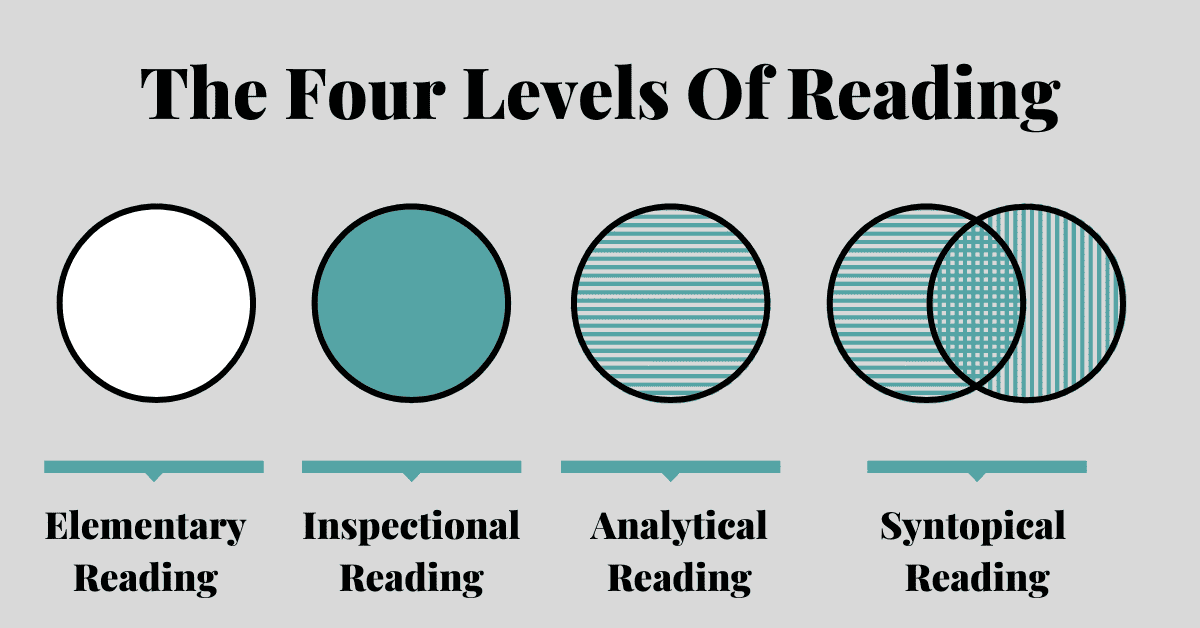
The four levels¹¹ of reading are:
- elementary reading
- inspectional reading
- analytical reading
- syntopical reading
Elementary reading
This is the reading level taught in schools from an early age. By reading this website, you already know how to use elementary reading. The question the reader needs to answer for elementary reading is “What does this sentence say?”
Inspectional reading
Inspectional reading has two subtypes:
- systematic skimming
- superficial reading
Systematic skimming is about grasping the structure of a book. It helps you create a framework inside your head that you will, later on, fill with exact information. Systematic skimming requires you to read the table of content carefully, reading the preface, index, and jacket of a book. You dip here or there, read a paragraph or two, never more, and figure out two things: the structure of the book and if the book is worthy of deeper reading.
Superficial reading is just reading the book cover to cover without stopping to ponder any arguments the author makes, without writing any notes or marginalia, without checking any unknown terms or anything else. You just read the book without stopping for any of that.
Inspectional reading is just like summaries— it provides the gist of things. But sometimes, we need more than that.
Analytical reading
“Some books are to be tasted, others to be swallowed, and some few to be chewed and digested.”—Francis Bacon
Analytical reading is chewing and digesting a book. It’s active reading where you start to ponder the author’s arguments, write notes and marginalia, and inspect the research the author provided. Analytical reading is slow and requires plenty of time, but you make the most from the book.
A couple of questions you need to answer when you’re reading a book analytically:
- What’s the book about (as a couple of sentences summary)
- Define the problem the author is trying to solve
- Is it true? And what (which part) of it?
- Explain the major parts (arguments) of the book in their logical order
This can sound easy and simple enough, but requires a lot of work to successfully pull off.
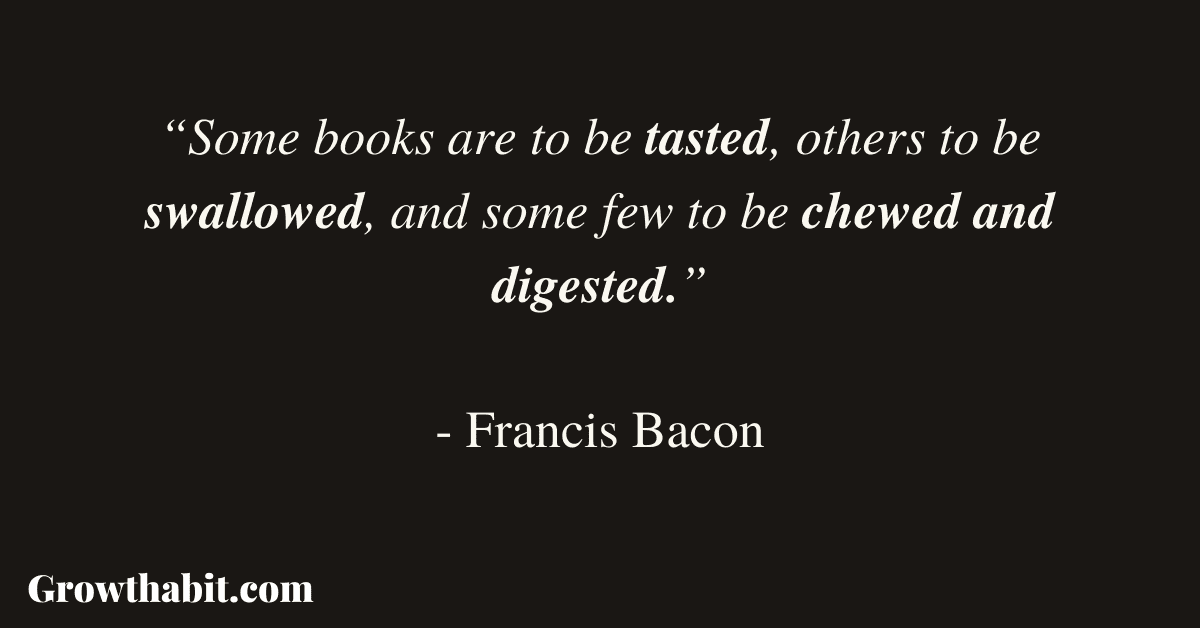
Analytical reading will make you understand and comprehend the book at hand, but you still have one more level to cover. And that’s understanding where the book with its concepts falls under the larger umbrella of the underlying idea. For that, we will use syntopical reading.
Syntopical reading
This is also known as comparative reading and it’s one of the most difficult readings of all. In practice, this would mean taking a wider topic such as capitalism, fitness, or habit building and comparing the arguments, wordings, and ideas of multiple authors about the same ideas to find out what the truth is.
You would have to find the relevant passages from multiple books and multiple authors, figure out your own terminology for things (so you don’t get lost), ask specific and important questions, and analyze the discussions done in the field.
Syntopical reading is how you form an informed opinion about a topic— you look at it from different angles and perspectives from multiple authors until you come to terms and reach conclusions.
“You must force yourself to consider arguments on the other side. It’s bad to have an opinion you’re proud of if you can’t state the arguments for the other side better than your opponents. This is a great mental discipline.”— Warren Buffet¹²
How to determine the reading level of a book
Determining the reading level of a book isn’t a rule set in stone. Because there are some books that people will take different approaches to. If you’re interested in the history of South-East Asia¹³ and you study it for 10 years already, then you will probably be inclined to study those books on an analytical or syntopical level. But I would probably just superficially read them.

But then again, there are some to determine what books everyone can get a great deal of if they read it deeply:
- Philosophical books
- Classics that stand the test of time¹⁴
- The most prominent books in your area of expertise
Reading books vs ebooks
This has been an argument for quite some time. To read a book in the physical format or to read it as an ebook. There are some authors who only read books in the physical format such as Ryan Holiday¹⁵, the author of Ego is the Enemy and The Obstacle Is The Way. While some authors don’t really mind reading books in any format.
This will eventually come to your preference. I’m used to reading ebooks instead of books in the physical format. There are two reasons why I do it:
- Faster to acquire a book in the online format
- Marginalia and notes
Faster to acquire a book in the online format
I live in Croatia (for now) and I can’t just go into a bookstore and get the new book from an author I want. Most of them don’t get translated into Croatian and even when they do, it happens years after the initial release.
So I just buy the ebook because then I can start reading it instantly. Also, I sometimes order physical books because I like to give them as gifts to people (way better gifts than ebooks). With an ebook, I can buy it and start reading it in mere seconds. If I want a physical book, I would have to wait 10-15 days for the book to arrive at my address. And by then, I can already finish the ebook and start reading a new book.
And the second reason.
Marginalia and notes
Even though I’m a writer, my handwriting is horrible. So when I get a physical book, I write the marginalia¹⁶ and notes in the book itself and my handwriting makes it impossible for it to have any structure. But when I do it on my laptop, it’s easy, clean, and structured.
Also, I can move my notes and marginalia to a folder where I store and categorize my notes with ease. It’s in my drive so I can access it from anywhere and they’re always there with me, whether I’m using my laptop or my phone. But with physical cards (tried it), it’s a pain to move them constantly with you and keep them accessible.
So an online format of reading and taking notes and marginalia works for me. But for you, it might be different. It’s a personal preference— keep experimenting until you find what works for you and then stick with it.
Books every man should read
And for the last chapter of this guide, I left the actionable step. A list of books every man should read. You don’t need to read all this year, but you can start with one book per category and try to read them this year. I’ll keep the list focused on nonfiction books.
Self Help
- Everything Is F*cked by Mark Manson
- 12 Rules For Life by Jordan Peterson
- The 7 Habits Of Highly Effective People – Stephen Covey
Psychology
- Stumbling On Happiness by Daniel Gilbert
- Sapiens by Yuval Noah Harari
- Thinking, Fast and Slow – Daniel Kahneman
Business
- Barking Up The Wrong Tree by Eric Barker
- Good to Great by Jim Collins
- Unscripted by MJ DeMarco
Marketing
- Influence by Robert Cialdini
- Never Split The Difference by Chris Voss
- Made to Stick by Chip & Dan Heath
Philosophy
- Meditations by Marcus Aurelius
- True Believer by Eric Hoffer
- The Art Of Learning by Josh Waitzkin
History
- The Hero With A Thousand Faces by Joseph Campbell
- The Lessons Of History by Will & Ariel Durant
- The 48 Laws Of Power by Robert Greene
Biographies, autobiographies, and memoirs
- Endurance: Shackleton’s Incredible Voyage by Alfred Lansing
- Conspiracy: Peter Thiel, Hulk Hogan, Gawker And The Anatomy Of Intrigue by Ryan Holiday
- When Breath Becomes Air by Paul Kalinithi
Relationships
- The Truth: An Uncomfortable Book About Relationships by Neil Strauss
- The Seven Principles for Making Marriage Work by John Gottman
- The Way Of A Superior Man by David Deida
Religion & Spirituality
- The Power Of Now by Eckhart Tolle
- Sex, Ecology, Spirituality by Ken Wilber
- The Book of Joy by Desmond Tutu & Dalai Lama
Conclusion
We covered the importance of reading and especially reading books. We saw the multiple benefits reading can have on the person, whether it’s gaining information from the source, practicing your memory, concentration and focus, and gaining the ability to discipline yourself by reading difficult and complex books.
There are four levels of reading and some books require a higher level of reading (analytical and syntopical). Also, reading physical or ebooks is a matter of practicality and preferences– reading is important, the format not so much.
And last, but not least, we recommended some books you should definitely read in 2021 from different nonfiction genres such as psychology, biography, history, business and many more.
If you’re interested in growing a reading habit, check out our habit tracker below and subscribe for more content like this.
Sources
- Ideas That Changed My Life by Morgan Housel
- Kathleen Carley, Michael Palmquist, Extracting, Representing, and Analyzing Mental Models, Social Forces, Volume 70, Issue 3, March 1992, Pages 601–636, https://doi.org/10.1093/sf/70.3.601
- Billington, Dr Josie and C. Dowrick. “An investigation into the therapeutic benefits of reading in relation to depression and well-being.” (2011).
- The Complete Guide to Effective Reading by Maarten van Doorn
- How to Read a Book: The Classic Guide to Intelligent Reading by Mortimer Adler
- Fahrenheit 451 by Ray Bradbury
- Gödel, Escher, Bach: an Eternal Golden Braid by Douglas R. Hofstadter
- A Strange Thing Called Love: In the view of Thermodynamics
- Dilbert
- Integrative Complexity
- How to Read a Book: The Ultimate Guide
- Warren Buffett CEO, Berkshire Hathaway
- D.G.E.Hall, History of South-East Asia, Macmillan Education UK, January 1981
- 100 must-read classic books, as chosen by our readers by Penguin
- Ryan Holiday
- The Necessity of Marginalia in the Age of the Ebook
